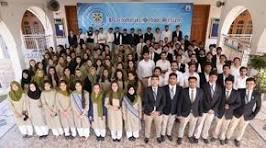blog 6 (Education in Sindh: A Look at Private and Public Schools)

Education in Sindh: A Look at Private and Public Schools Sindh, the most urbanized province in Pakistan, has many challenges and opportunities in its education system. The Sindh Government recently released the Private Schools Census 2023, which gives us a clear picture of private schools. At the same time, public schools, especially at the primary level, also need attention. This blog provides an overview of both private and public schools in Sindh, sharing important facts and highlighting key issues. Private Schools: Key Facts The Private Schools Census 2023, presented by Sindh Education and Culture Minister Syed Sardar Ali Shah, shows that over 3.9 million students are studying in private schools in Sindh. This includes 1.8 million girls and 2.1 million boys in 11,736 active private schools. These schools provide jobs for almost 300,000 teaching and non-teaching staff. The census data breaks down the private schools into different levels: 1,247 primary, 553 middle, 2,784 eleme...



